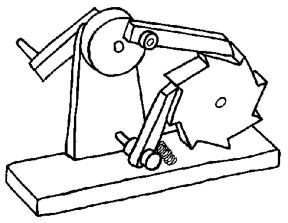« Richard H. Thaler | Main | Fame at last »
August 23, 2004
A Model of Reference-Dependent Preferences
MODELING PREFERENCES THAT RESPECT REFERENCE POINTS

Reference-dependent preferences are everywhere. A working paper by Berkeley's Botond Koszegi and Matt Rabin provides a welcome model of them. Read on.
Quote:
"Our goal in this paper was to put forward a fully specified model of reference dependent preferences that can accommodate existing evidence and, most importantly, be applied to a wide range of economic situations. The centerpiece of our model is the proposal that a person's reference point is her recent probabilistic beliefs about the outcomes she is going to get. Thus, for example, if she expects improvements in her circumstances, and these changes fail to occur, she experiences a painful sensation of loss, even if she has retained or improved on her status quo. Indeed, our model provides an avenue to study an intuition about the strong role that expectations play in employee satisfaction with wages; it predicts both a status quo bias in stagnant environments, and a taste for improvement in environments where workers have become accustomed to improvement."
Abstract:
"We develop a model that fleshes out, extends, and modifies existing models of reference dependent preferences and loss aversion while accomodating most of the evidence motivating these models. Our approach makes reference-dependent theory more broadly applicable by avoiding some of the ways that prevailing models—if applied literally and without ancillary assumptions—make variously weak and incorrect predictions. Our model combines the reference-dependent gain-loss utility with standard economic consumption utility and clarifies the relationship between the two. Most importantly, we posit that a person's reference point is her recent expectations about outcomes (rather than the status quo), and assume that behavior accords to a personal equilibrium: The person maximizes utility given her rational expectations about outcomes, where these expectations depend on her own anticipated behavior. We apply our theory to consumer behavior, and emphasize that a consumer's willingness to pay for a good is endogenously determined by the market distribution of prices and how she expects to respond to these prices. Because a buyer's willingness to buy depends on whether she anticipates buying the good, for a range of market prices there are multiple personal equilibria. This multiplicity disappears when the consumer is sufficiently uncertain about the price she will face. Because paying more than she anticipated induces a sense of loss in the buyer, the lower the prices at which she expects to buy the lower will be her willingness to pay. In some situations, a known stochastic decrease in prices can even lower the quantity demanded."
Full article available for download
Related Books:
*Colin F. Camerer, George Loewenstein & Matthew Rabin (Eds.) (2004). Advances in Behavioral Economics.
*Daniel Kahneman & Amos Tversky (Eds.) (2000). Choices, Values, and Frames.
Posted by DSN at August 23, 2004 03:20 PM